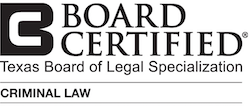After a DWI: Next Steps
If you are arrested in the State of Texas for being under the suspicion of Driving While Intoxicated, there are many important things you should consider to best prepare yourself for what lies ahead when it is time to go to court to face the accusation. At The Law Offices of Carl David Ceder we pride ourselves in being as experienced, trained, and as skilled as possible to properly defend against any charge of Driving While Intoxicated.
After you have been released from jail for your DWI, below is a helpful outline of what you should be thinking when proceeding to handle your case:
- Within two or three days of your arrest, you would want to contact an experienced and trained Texas DWI Defense Attorney to represent you later in court. Generally speaking, the sooner you consult with an attorney, the better advice you will get. It can be crucial to get started as early as possible. An attorney who actively contests DWI cases (via a variety of ways, such as Motions to Suppress, Jury Trials, Bench Trials, etc.)is the best option for who you want to represent you with your pending DWI charge. You want to make sure the attorney you decide to hire will contest your accusation by examining every angle possible, and who has had prior success in doing so, and the proper experience and training to fully develop a viable and best defense. To read more on how to evaluate a DWI Defense Attorney in Texas, please read HERE.
- Many DWI attorneys feel the best and only option for a DWI client is for them to plead guilty - and do no research or exploration as to what possible defenses could be explored. To read more about possible defenses, please read HERE. You want to avoid attorneys who operate like a "plea-mill" and try and simply talk you into pleading "Guilty." Before this avenue is explored, every possible option to aid in your defense should be scrutinized. Do not simply believe an attorney who tells you that there is no chance to win your DWI case, especially if they do not give any reasons as to why this might be the case. Many times there is always a good chance of obtaining a favorable outcome, regardless of the facts. Sometimes the arresting officer quits or gets fired, sometimes very favorable juries end up deciding the case, certain pieces of evidence may not come in, etc. The main point here is to try and explore all avenues, and then consult and discuss with your attorney all possible scenarios and options you may could explore.
- It is a good idea usually to return to the location of where you were arrested and take some photos or a video of the scene, and when you do so, it would be more helpful if you do it within a short time period following the actual arrest. The idea is to get pictures of tire marks, property damage, unusual areas where the physical portions of the Standardized Field Sobriety Tests (SFST's) were conducted, or anything unusual that may be found that aid in your defense. You want to make sure you take detailed photos of all of the vehicles involved if there was an accident.
- Write down everything you can remember about your arrest, and include everything within the 24 hours prior to the arrest. You should do this as soon as possible, and definitely within a couple of days. With a detailed testimony, your trial may have a better chance of winning. The following is a list of several things to help you when writing your list:
► How much sleep did have the night before your arrest?
► Describe everything you did, in as close of detail, relating to the events over the 24 hours prior to your arrest.
► Record everything you ate and drank that day, including at what time intervals you did so.
► Record any medications you took whether they were over the counter or not, and when took them.
► Write down every person you were with at any time prior to the arrest because they can be a witness to aid in your defense.
► If you happened to be at a bar, club or where someone served you alcoholic drinks, make sure you include the names of those people. For liability purposes, they usually more than cooperative in testifying that they did not serve you enough alcohol to get you intoxicated.
► If you went out with friends or co-workers, recording the places you went too with who drove to each location, the routes taken and even the order in which each person arrived at each party location.
► Within 15 days of your arrest or if you received a license suspension notice, your Texas DWI Defense Attorney should request a hearing from the DPS about the drivers license suspension (commonly referred to as an "ALR Hearing" request. It is important to know that your right to a hearing is forfeited if NOT requested within 15 days. It can be an invaluable discovery tool, and many options can be explored if one decides to conduct the ALR hearing.
► It is always best to consult with an experienced, trained, and skilled Texas DWI Defense Attorney regarding ANY DWI charge because in Texas (as is the case with most States now) - a conviction does mean it will be a permanent mark on your record. Therefore, it is undoubtedly worthwhile to try and do anything you can do to contest the charge, or in the alternative, to mitigate whatever scenario and facts are given (every case is different, every county, every court, every Judge, every prosecutor working for the State of Texas, etc.).When deciding whether or not to contest your charge of DWI, you want to think about the future in the long-term, and not regret contesting a DWI charge when you may have had the chance. If arrested again, often it is the case where the first charge should have been contested, which would have left the individual in a much better legal circumstance than having to face the enhanced charges for having a prior conviction.There are many people who assume they cannot win their DWI because they believe they were truly intoxicated, they failed the Standardized Field Sobriety Tests, they may suspect (or know) that their is a chemical specimen of either breath or blood test with a BAC indicating that it is over the legal limit, perhaps they feel the case is unwinnable because they mixed alcohol with other medications, blacked out or caused an auto accident, etc. Honestly, it really doesn’t matter what the circumstance is with your case, because your case has a chance of winning. Therefore, consult with an experienced Texas DWI Defense Attorney so they can try and uncover all possible defense to learn everything about your options.
► It is important to hire an attorney that you are comfortable with, and at a reasonable rate. There is saying that you "pay for what you get." This is especially true with DWI Defense cases. DO NOT HIRE THE CHEAPEST ATTORNEY YOU CAN FIND! This charge is too important. Find an attorney who will do the aforementioned tasks, and charge you a reasonable, and competitive rate. You will also find some attorneys who will try and charge exorbitant amounts for various reasons. I think it is wise to stay away from anyone that is not honest in their approach, and all attorneys should be upfront with you, at least approximately speaking, of what the cost will be overall when various scenarios are considered.
► If you have any witnesses that were around before you were arrested, you should get together with them to see if they would write down everything that they remember about the time they were with you before your arrest. It doesn’t matter about the amount of information your witness remembers, it is still a good idea to get them to write it down because it may still help your case. The law enforcement officers are professionals, and they always make sure they take the necessary time to record everything including what they observed right after the DWI arrest. Without any notes, you may not remember as much and won’t have as much credibility in front of a jury.
► Under some circumstances, your DWI may be dismissed by a Motion to Suppress. A Motion to Suppress is a challenge to the legality of the law enforcement officer’s actions when they stopped you. Some particularly fertile grounds for a Motion to Suppress would include if stopped for weaving or failure to stay in a single lane, a cracked tail light, or even following another vehicle too close.
► Just because had to take a breath or blood test, it doesn’t mean it will harm your case. In fact, a breath or blood test scoring under 0.12 is sometimes better than no test at all. A high breath or blood test score like 0.24 and above can also possibly be to your advantage, especially if there is a video and you don’t look intoxicated. If a blood test was taken without your consent, the results might be thrown out by the judge or jury. There are a numerous ways to raise a defense that the chemical specimen should not be admissable at court, and therefore meaning that the results of a breath or blood test may be kept out of a subsequent jury trial.
► Was there anyone who saw you driving before you were arrested? To be convicted, the prosecution must prove you were actually driving, or "operating", a motor vehicle. They must prove that you were operating the vehicle before they should be able to obtain a conviction of DWI. If the officer didn’t see you driving the car, or another witness did not observe the driving, you may have a chance of winning a Motion to Suppress, or even an acquittal - because the State would have failed to prove Beyond a Reasonable Doubt an essential element of being "Guilty" of Driving While Intoxicated - the "operation" portion of the offense. This can happen frequently especially when there has been a car accident. The prosecution must have independent proof that you were actually driving the car, and cannot just surmise on their own that you were.
► An accident may also help your case. First, they may not have the proof that you were actually behind the wheel. Second, minor blows to the head can cause symptoms similar that can very much mimic the effects of being intoxicated. Slurred speech, disorientation, unsteady balance, mental confusion (possible concussions) all may mislead an investigating officer that you are intoxicated, instead of just being nervous, scared, and confused after a car accident. The prosecution must prove the symptoms were caused by intoxication, another aspect that may have been related to the accident.
Contact Our Office Now
Just because you may be facing a charge of Driving While Intoxicated, you can still fight and contest the charge, and you could very well have a great chance to obtain a favorable result with your case. All of the above is to help you to be properly prepared for court when it is time for you to possibly contest the charge pending against you. You want to make sure you give every piece of information to your Texas DWI Defense Attorney so they can help you explore every viable defense relating to your DWI case. Contact The Law Offices of Carl David Ceder 24 hours a day/7 days a week at 214.702.CARL(2275) or 469.2000.DWI(394). You can also contact Carl directly at Carl@CederLaw.com, or the office in general at Info@DFWDefenders.com. Please contact us anytime should you need assistance.




















